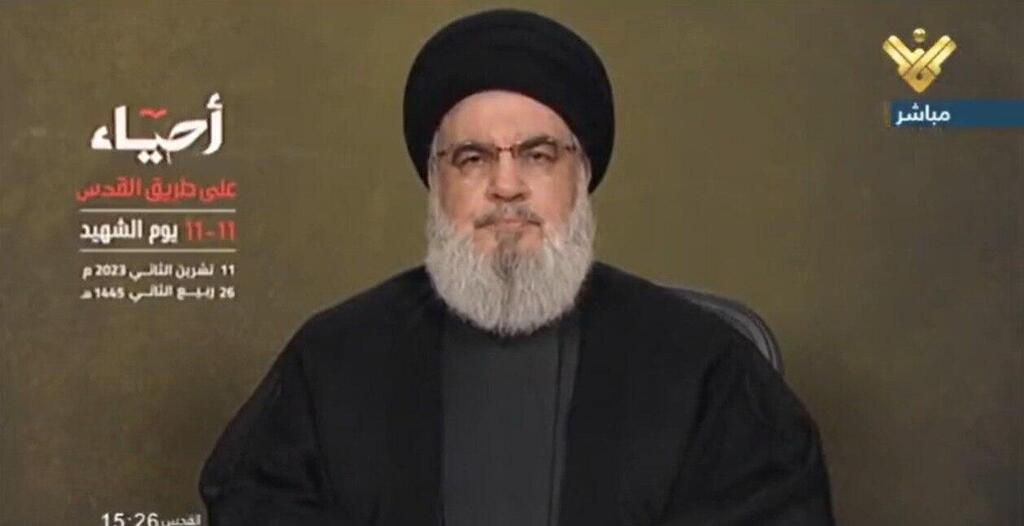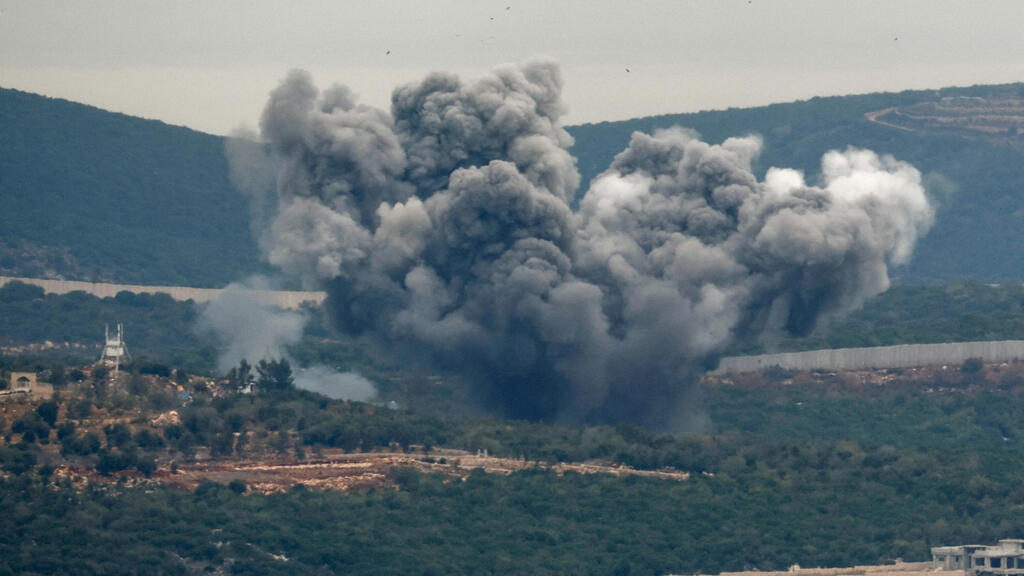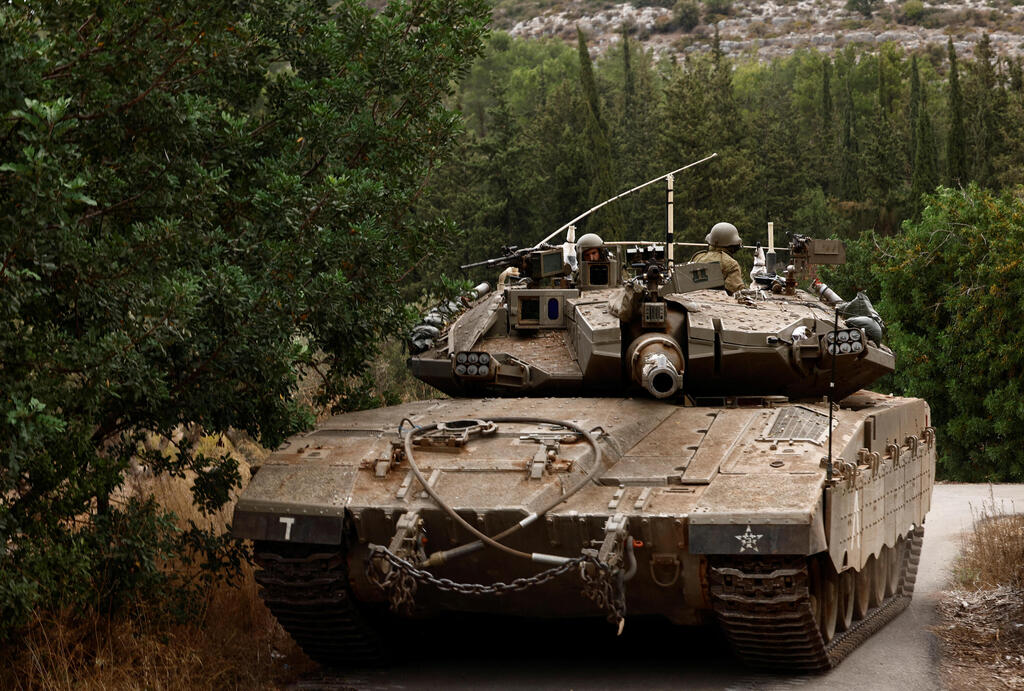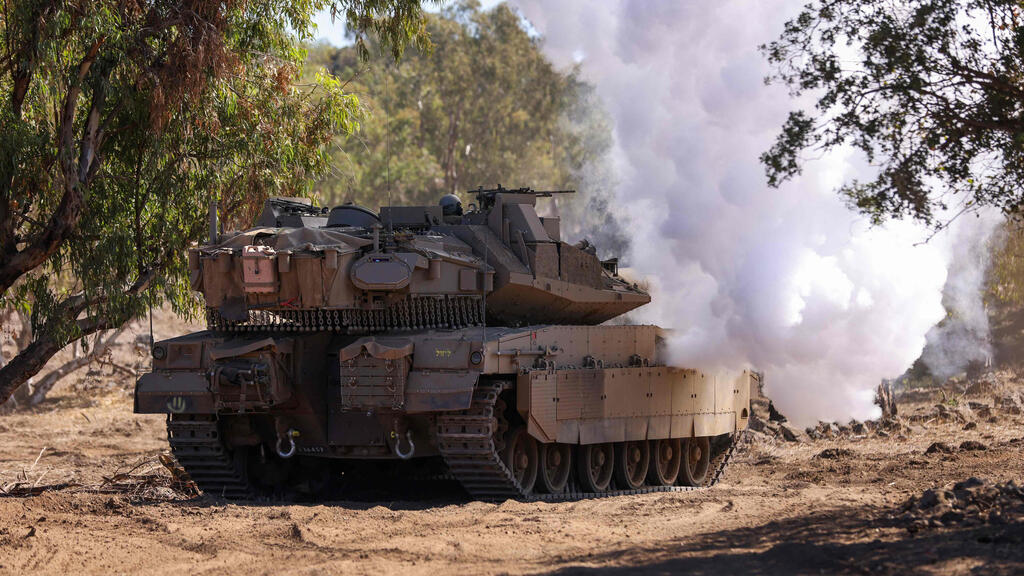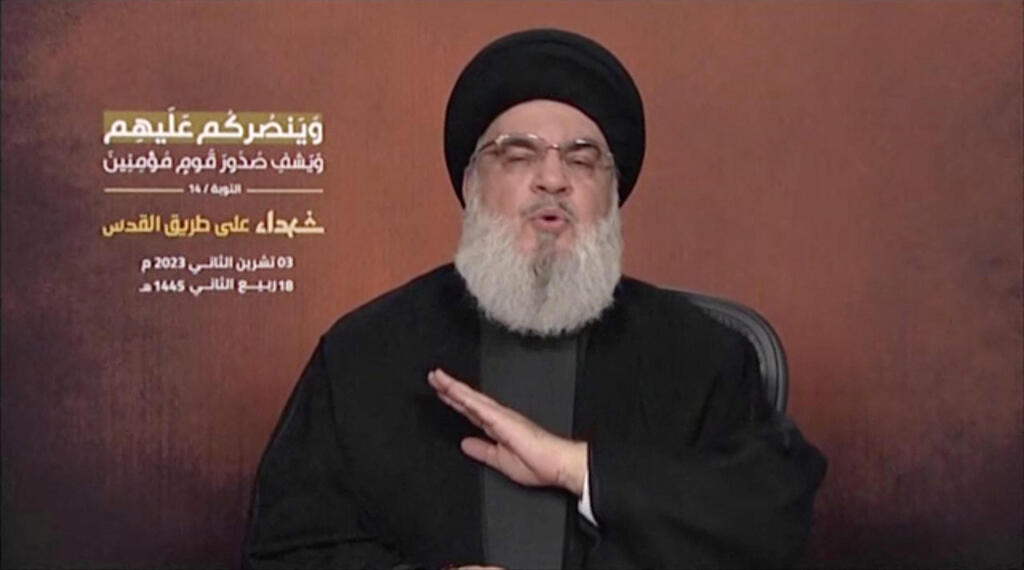The anti-tank missile launched from Lebanon on Sunday, hitting five Israeli civilians, is a painful blow that the IDF will undoubtedly make Hezbollah pay a price for. This price isn't revenge for targeting civilians in the country, but primarily to further curb the terror organization's military capabilities. There’s an element of revenge in these actions, but it's not their main factor.
More stories:
Israel’s war cabinet, the IDF and other security officials have been working since October 11 according to a clear strategic plan aimed at fundamentally changing Israel's security situation, not only in the context of Gaza, but also primarily against Hezbollah in Lebanon, with other Iranian proxies in the region coming third in priority.
The first principle in this plan is the dual achievement in Gaza - the dismantling of Hamas’ rule and the release of all Israelihostages. These two goals are very ambitious and require the full force, intelligence and diplomatic capabilities available to Israel.
When the decision was made regarding the priorities in Gaza, another critical decision also was made - derived from old but effective war strategies – focusing Israel’s efforts. This decision rules that there’s a need to change the situation at the northern border, but not necessarily at this moment and with full force.
The military command understands that, in terms of forces and resources, it's possible to fight a war on two fronts, but that it's preferable not to fight in them simultaneously but in a gradual manner, especially when dealing with warfare that has such complex political and international dimensions that include fighting near civilian populations.
Defense Minister Yoav Gallant isn’t mincing words or acting arrogantly when he says that the Israeli Air Force might turn Beirut into Gaza. IDF ground forces could potentially operate in Lebanon too, but it's preferable for that to happen at a time chosen by Israel, when all military and diplomatic focus is invested in the northern mission rather than divided between Gaza and Beirut.
Hezbollah leader Hassan Nasrallah knows all this, evident in the speech he gave on Sunday. He concluded that he could stretch the line he holds against Israel a bit further and show the Arab world, and particularly his Iranian patrons, that he fights for and supports Gaza more than anyone else.
He still interprets Israel's strategic restraint as a weakness that allows him to cause damage (alongside Hezbollah’s losses he deems acceptable). But he's failed to understand one basic principle: the rules of engagement he had previously set against Israel are no longer in effect.
Israel and the IDF are leading the fighting primarily based on their security needs, not out of fear of what Hezbollah might do, or based on what the U.S. might say in the event of a significant operation in Lebanon.
The decision to utilize the IDF's power in the north is derived from Israel's long-term goals, and the cost it's willing to pay for the strategic restraint it shows in the northern border - designed to enable the completion of its mission in Gaza – isn’t without end. In simple terms: Nasrallah might be surprised by the price he'll pay, even if Israel delays turning Beirut into ruins.
To show Israel no longer adheres to Hezbollah's previous equations, we can use the example of the attack drone that struck a school in Eilat last week. It wasn't Hezbollah members who fired it, but rather militia fighters trained by Hezbollah.
In the past, the IDF had attempted to target those militia members or send warning signals to Hezbollah. This time, Israel's response was the intentional elimination of seven of Nasrallah's terrorists operating in Syria in collaboration with the same militia. This example is added to several cases indicating that Israel no longer allows Hezbollah to set the rules of their grim game.
The retaliatory attacks and counter operations the IDF is currently undertaking significantly chip away at Hezbollah's capabilities to sustain a military presence and terror infrastructure in southern Lebanon.
Ultimately, at the end of the war, Nasrallah might discover that his tactical maneuvering in trying to help Hamas inadvertently helps Israel in dealing with Hezbollah as a threat far more efficiently.
How to keep Hezbollah away from the northern border
Israel’s security officials aren’t settling for a more aggressive management of the ongoing fighting at the northern border against Lebanon. Plans are already being formulated for the day after the war.
It's clear by now that no Israeli will return to communities close to the Lebanon border as long as Hezbollah's elite Radwan forces are stationed at the border. This isn’t just because of the residents' outcry but because, after October 7, no Israeli government can take responsibility for a similar situation in the north, especially facing an enemy far more dangerous than Hamas.
Israel doesn’t need an all-out war to achieve this result. There are several steps and means to ensure the residents of the settlements bordering Lebanon and Syria can safely return there and lead normal lives.
One such step is a substantial reinforcement of IDF forces protecting the border and communities. Before Hamas’ massacre, several IDF bases were guarding the border in Gaza along with several elements mainly relying on preemptive intelligence. This is no longer enough.
"When residents in the north look toward the border, they should always see IDF soldiers there, rather than Radwan forces disguised as members of the Lebanese Forest Keepers organization," a security official said.
This, however, isn’t as simple as it sounds. The IDF will need to increase its forces, particularly its ground forces, several times to implement the required defense tactic the northern border no requires. Currently, IDF forces are stationed between the border and the Israeli settlements, but this readiness - suitably adjusted - needs to continue in the future. That's the irrefutable lesson derived from Hamas' attack.
Another measure is to bolster and fortify the border itself and the warning systems established in it. This bolstering, whose completion was halted due to the need to transfer funds signed during coalition agreements, holds far more significance in military terms than the border that protected southern Israeli settlements. Additionally, it's essential to expedite the process of constructing defensive measures in all Israeli homes close to the border.
But the main goal should be carried out via a diplomatic move backed by a credible military threat: Hezbollah won't be allowed to post armed terrorists in southern Lebanon, certainly not commando forces, as specified by UN Security Council Resolution 1701, which facilitated the end of the Second Lebanon War.
It's reasonable to assume that international mediation will be required according to Israel's demand, backed by the IDF’s military capabilities. This is done to motivate Nasrallah to accept and comply with these demands. These demands shouldn’t be tabled after the fighting in Gaza ends, but when Israel achieves a significant portion of its goals in the Strip, enabling a shift of focus and diplomatic and military resources to address the Lebanese issue.
It's crucial to note that the demand for the removal of Hezbollah’s terrorist forces from the border should be backed by the IDF's ability to ensure his compliance, unlike his indifference toward UN forces in Lebanon today. If all of these means are implemented promptly and efficiently, Israel’s northern border communities with adequately prepared and equipped alert squads, will be able to return home.



